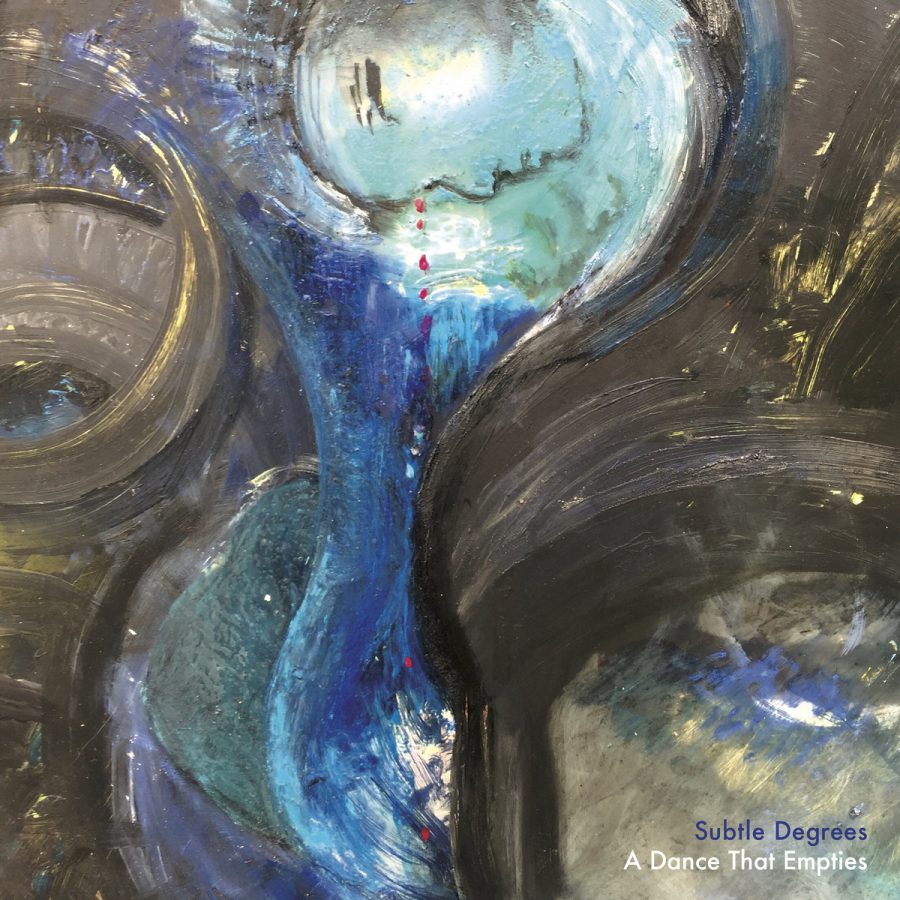Taraval is a US producer with just a few releases to his name. He released his debut on Four Tet’s Text Records, following stints performing as part of Caribou’s live band. He also runs the label Geej with Jeremy Greenspan, through which the pair’s collaboration Greenspan And Taraval appeared last summer. His latest arrives on UK imprint Hypercolour and it’s a study on panic and intensity. It opens with raucous noise; an explosive, unending siren called “No Coast” that pierces ears over a thick and undulating bass line. It sets a tone of unease that refuses to leave throughout the release. At nearly eight minutes, this hefty beast of a title track has an ideal runtime to tempt DJs with transition and blend prospects. For home listening, however, it does begin to grate. “Stan’s Loon” is only slightly more relaxed – a repeated flourish mimics the bird of the title over a squidgy midriff, before another siren burrows its way into the proceedings as the track’s percussive stomp intensifies. “Kima Jima” takes its percussive cues from the minimal world of Perlon and co. Balanced with dainty synth motifs and cymbal crashes, it becomes a whirlwind that amps listeners up for a stormy finale. A thick stomp brings “Topaz’s Way” to life, while an unsettling squawk is syncopated from bar to bar. Like the hypnotic cascades of “Kima Jima”, a frenzied panic of notes charges through this track, from anxious melody to insistent rhythm. All in all, it’s not an easy or comfortable listen though it really is a surefire way of blowing up any dancefloor in need of some dynamite.
The sound of London-based DJ, producer and Femme Culture label co-founder Elkka is infectious. She’s introduced herself through a trio of releases featuring dancefloor rhythms highlighted by her distinctly husky voice. Her latest, Control – Remix EP, is the final chapter to her debut series on Femme Culture and exhibits the strength of her vocals and melodies as recontextualized by fellow artists. Emphasizing women’s talent, it enlists the skills of Bristol’s L U C Y and Italian DJ Elisa Bee to interpret the single in their own respective ways. On the original, Elkka breathes over washes of synths and rolling percussion, sometimes melting into the music and others times ringing out with commanding presence. The L U C Y remix begins with slow foreboding as she twists Elkka’s voice into an ominous choir over high-pitched keys. “We must succumb” becomes a ghostly order, set amongst guttural basslines and hollow synths. It highlights the original’s balance of vulnerability and power, morphing from shadowy grime to a serene house interlude. Elisa Bee takes a more straightforward approach, creating a contagious club track that effortlessly falls into a hypnotic rhythm. Elkka’s vocals are filtered into a thin, airy layer, hovering over the last half of the track with a dreamlike quality. Ultimately, the record underlines Elkka’s melodic range and her collaborators’ creativity, as they each realize unique visions for “Control” while retaining the original’s distinct emotionality.
A composer known for both stoic experiments and wide-eyed romanticism, Travis Laplante has led tenor sax quartet Battle Trance through and between idioms, threading together free jazz, drone and love songs. Their last record, Blade of Love, saw Laplante play dramatically and cosmically, though he can also be tender, relaxed, even funny. On Secret Meeting, a collaborative record with trumpeter Peter Evans, he uses his horn to exchange motifs that sound like the free improv equivalent of awkward dinner conversation.
Laplante’s latest composition, A Dance that Empties, is another work of endless surprises. Composed for Subtle Degrees (Laplante’s horn and Gerald Cleaver’s drums), it sets out to encompass “classical music, avant garde jazz, minimalism, technical death metal and sacred world music”. It begins as a record so sparse, so respectful of the environment housing it, that silence joins the players to form a trio. Opening with restrained blowing that echoes legendary tenorist John Butcher, the first part unfurls through Cleaver’s scattershot drums and Laplante’s dramatic deviations through the octaves. Among the light tones and full-blown screeches, John Coltrane’s attempts to reduce free jazz to its most economic level with drummer Rashied Ali spring to mind: maintain all intensity with half the quartet.
In the second movement, Laplante’s relentless waves of circular breathing are matched by mirroring drumwork, with Cleaver occasionally reaching for a cymbal as if to stem the tide. These aggressions are reprised in the record’s finale, but here Laplante plays with the melodic vulnerability so often hidden beneath his experiments. He brings the record to a close with a shrill, droning note that anonymises what’s come before – as if trying to end all records of urgent, declarative expressions with one rudimentary exercise.
Words by Aidan Hanratty, Taylor Trostle and Robin Smith.




